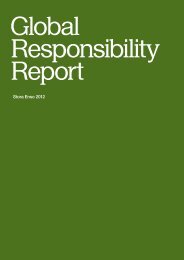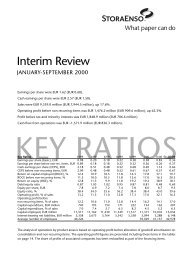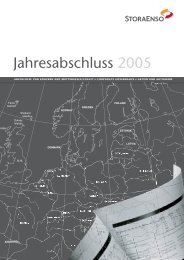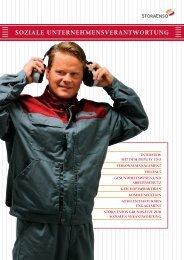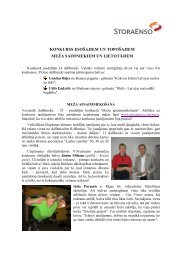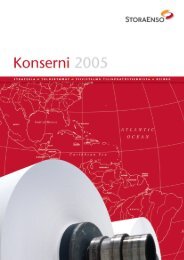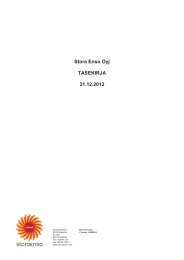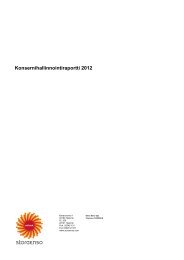Create successful ePaper yourself
Turn your PDF publications into a flip-book with our unique Google optimized e-Paper software.
Rubbish revolution<br />
Ostrołęka<br />
Poland<br />
In Poland, nearly two million tonnes of valuable<br />
recyclable raw material goes to waste every year.<br />
The country’s recycling rate is among the lowest<br />
in Europe, as it has no effective waste-processing<br />
chain in place. This will all change in 2013.<br />
Text Eeva Taimisto<br />
Photos Paulina Terendy, Ekomena<br />
Aphoto of a coniferous<br />
forest is projected onto<br />
the conference room wall.<br />
The ground is littered with<br />
rubbish: plastic wrappers,<br />
tin cans and food scraps.<br />
Waterlogged milk cartons<br />
and empty plastic bags lie amid the moss.<br />
“Some people who live around here throw their<br />
rubbish in the forest,” says Stanisław Giżycki, an<br />
activist with the Polish environmental organisation<br />
Ekomena. We are at the organisation’s office<br />
in the town of Ostrołęka, roughly 120 kilometres<br />
north of Warsaw. Ekomena activists campaign on<br />
behalf of environmental protection in Poland and<br />
collect rubbish from forests and other outdoor<br />
areas. “Some people pollute the environment with<br />
their trash to avoid paying the waste-collection<br />
fees,” Giżycki explains.<br />
“Others just don’t care.”<br />
Waste management in Poland is undergoing<br />
a major transformation during 2013, as the<br />
country will reform its entire waste-handling<br />
system by setting up a common waste tax,<br />
with which all municipalities will organise their<br />
waste management. The collection, processing,<br />
recycling and disposal of waste have, until now,<br />
been the responsibility of consumers and the<br />
private waste management companies they pay<br />
directly.<br />
“Now, Poland will use public funds to establish<br />
a waste management system,” says Giżycki.<br />
“Once we switch over to the municipal system,<br />
everyone will have to pay the waste tax.”<br />
The motivation behind the reform is Poland’s<br />
ambition to institute an effective recycling<br />
system in the country – one that meets European<br />
standards. In 2010, around 73% of all waste in<br />
Poland remained unsorted and unrecycled. The<br />
European Union has stepped in on numerous<br />
occasions to impose fines on the country and<br />
finally by setting the condition that in 2013 no<br />
more than half of biodegradable municipal waste<br />
can end up at the landfill. By 2020 at least 50%<br />
of paper, plastic, glass and metals contained in<br />
municipal waste must be sorted out and prepared<br />
for reuse or recycling. If Poland doesn’t come<br />
through on this condition, there will be further fines.<br />
Random rubbish inspections<br />
The Mayor of Ostrołęka, Janusz Kotowski, is one<br />
of the officials responsible for setting up the new<br />
recycling system. “For the first time in Poland,<br />
this responsibility now lies entirely in the hands of<br />
the local authorities,” Kotowski says. “We need<br />
to use the revenue from waste tax to address this<br />
country’s waste-sorting issues.”<br />
38—<strong>Rethink</strong><br />
<strong>Stora</strong> <strong>Enso</strong>—39




